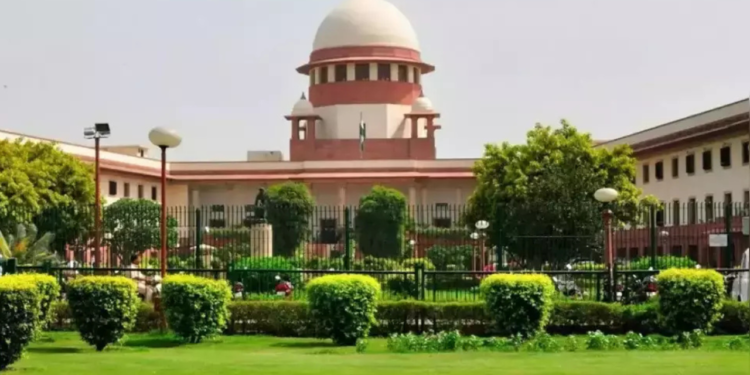Hart’s essay challenges Dworkin’s stance on policy arguments in judicial adjudication and reaffirms the distinction between judicial interpretation and law-making. This nuanced view is particularly pertinent for legal systems like India, where judicial review plays a central role in interpreting the Constitution and ensuring that laws align with fundamental rights.
The Role of Judges in Hard Cases in the Indian Legal System
In the Indian context, the judiciary has a long-standing tradition of engaging in judicial activism, especially when faced with constitutional and public interest issues. In complex cases where existing legal frameworks cannot provide clear answers, Indian courts have often invoked principles of justice, equity, and fairness to fill the gaps. Dworkin’s view that judges should refrain from policy-based decisions is at odds with this tradition, where courts frequently interpret social values and constitutional principles.
For example, in the landmark case of Vishaka v. State of Rajasthan (1997), the Supreme Court laid down guidelines to address sexual harassment in the workplace, even though no specific law existed at the time. This decision was an example of judicial creativity, where the Court went beyond the letter of the law to establish principles grounded in human rights and gender equality. In such instances, the Court was not creating new laws but rather interpreting and expanding existing constitutional principles to meet the needs of society.
Furthermore, the Kesavananda Bharati case (1973) established the concept of the “basic structure” doctrine, where the Supreme Court held that while Parliament has the power to amend the Constitution, it cannot alter its “basic structure.” This landmark judgment was another instance where the judiciary exercised its discretion to interpret the Constitution to safeguard its core values, thus displaying a form of judicial law-making grounded in policy considerations.
The Need for Balancing Policy and Judicial Restraint
While Indian courts have often taken an expansive view of judicial power, especially in cases where fundamental rights are at stake, there is also a recognition of the need for judicial restraint. The judiciary must balance the need for judicial intervention in complex cases with respect for the legislature’s role in enacting laws. The Indian judiciary has consistently emphasized that courts should not encroach upon the domain of law-making, mainly when the legislative intent is clear and unambiguous.
However, courts are empowered to step in when statutory provisions fail to address contemporary challenges or injustices. This is reflected in cases involving issues like environmental protection, public health, and the safety of marginalized communities, where judicial interpretation often goes beyond the text of the law to address the broader principles of justice.
In this context, Hart’s arguments against judicial overreach in policy matters provide a valuable counterpoint to the more activist approach often seen in India. While Hart’s essay emphasizes the limits of judicial intervention, it also affirms the importance of judges interpreting the law to balance competing legal principles, including policy considerations.
The Evolution of Judicial Philosophy in India
As India’s legal landscape evolves, integrating Hart’s critique into the Indian judiciary’s approach could lead to a more nuanced understanding of judicial discretion in complex cases. Hart’s emphasis on the “weak discretion” exercised by judges, where they balance competing interests without creating new laws, aligns with the Indian judiciary’s emphasis on interpreting the Constitution in a way that reflects the changing needs of society.
Moreover, the ongoing dialogue between Dworkin’s and Hart’s views gives Indian courts the tools to navigate the complexities of complex cases involving policy arguments. By considering both perspectives, courts can adopt a more balanced approach to adjudication, ensuring that their decisions align with democratic principles, legal consistency, and fairness.
Conclusion: A Turning Point in Legal Scholarship
Hart’s lost essay, now uncovered and published, provides legal scholars and practitioners with a fresh lens through which to view the role of policy in judicial adjudication. In India, where courts frequently confront complex cases, Hart’s critique offers an opportunity to refine the balance between judicial intervention and legislative authority.
As Indian courts continue to evolve in their approach to complex cases, integrating Hart’s philosophy could help shape a more restrained yet responsive judiciary that recognizes the importance of judicial discretion while respecting the boundaries between law-making and law interpretation.
By expanding the discourse on policy, principles, and adjudication, Hart’s essay invites a deeper reflection on the role of judges in shaping the legal landscape. It challenges the idea that judicial decisions on policy matters always constitute overreach, offering a compelling argument for why judges can and should consider policy in a way that does not undermine democratic principles or legal coherence.
The publication of Hart’s lost essay not only marks a significant contribution to legal scholarship but also offers a fresh perspective for Indian courts to consider as they navigate the complex terrain of hard cases involving policy and legal interpretation.
Jannani M is an Advocate practising before the Madras High Court.

















